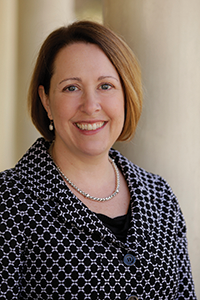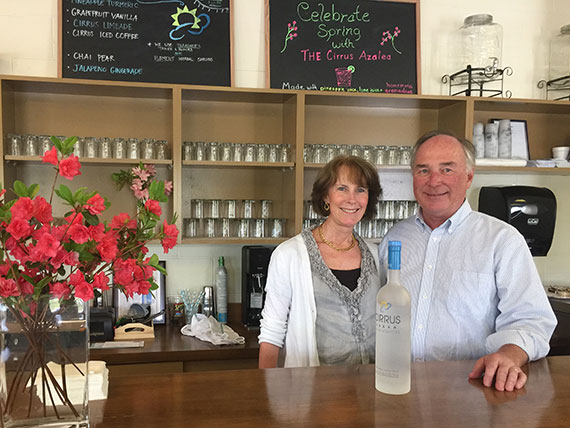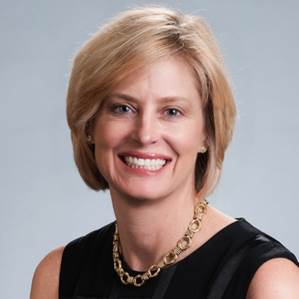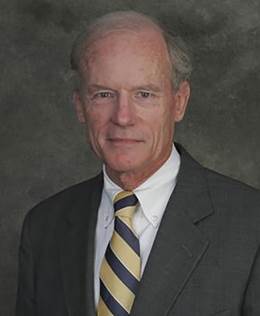This should be an opportune time for public accounting firms looking for talent. The number of certified public accountants in Virginia is growing. Also increasing, however, is competition for those CPAs.
“We are at an all-time high in terms of hiring, but we see a tremendous amount of competition from non-accounting [firms,]” says Gary Thomson, regional managing partner at Dixon Hughes Goodman (DHG) in Richmond.
Virginia firms say financial regulations enacted in recent decades are driving demand for CPAs. The Sarbanes-Oxley Act of 2002, for example, created more strenuous accounting standards in response to major scandals. The Dodd-Frank Wall Street Reform and Consumer Protection Act and the Affordable Care Act also have prompted businesses to seek more help with accounting.
 Stephanie Peters, the president and CEO of the Glen Allen-based Virginia Society of Certified Public Accountants (VSCPA), says recruiting recent graduates hasn’t been an issue for CPA firms. The problem comes instead when firms, especially smaller ones, try to find experienced staff.
Stephanie Peters, the president and CEO of the Glen Allen-based Virginia Society of Certified Public Accountants (VSCPA), says recruiting recent graduates hasn’t been an issue for CPA firms. The problem comes instead when firms, especially smaller ones, try to find experienced staff.
Firms in less populated areas, such as Southwest Virginia, can have a hard time recruiting because of a smaller pool of CPAs in the region. Firms in more populated regions, like Northern Virginia, encounter a different problem: stiff competition for talent from other CPA firms, corporations, nonprofits and the government.
That situation mirrors a nationwide trend. According to the 2017 Robert Half Salary Guide, companies looking for highly skilled accounting and finance employees continue to face a talent shortage, which can lead to fierce competition for employees. One motivator for attracting top CPAs is high salaries. According to the Robert Half guide, starting salaries at public accounting firms nationwide range from $50,000 to $76,750 (not including bonuses) depending on the size and type of firm.
Thankfully for Virginia, the number of CPAs has grown steadily. More than 27,600 CPAs were licensed in the state as of Jan. 31, a 7.7 percent jump from 2013, according to data from the Virginia Board of Accountancy (VBOA). Also growing, however, is the number of retiring CPAs.
“The retiring baby boomers are driving the need for more CPAs to fill jobs and take over firms,” Peters says.
It isn’t clear how many positions will need to be filled in Virginia as older CPAs retire. VBOA data, however, reveal that hundreds of CPAs each year either surrender their licenses or allow them to expire. Last year, the VBOA started surveying these former CPAs to find out why they gave up their licenses. Of 221 responses, the top answers were retirement, relocation to or licensure in another state, and no longer needing an active license.
Retaining CPAs
In response to the increased competition for talent, Charlotte, N.C.-based DHG has taken steps to improve employee retention and career development. Thomson says most CPA firms see an average annual turnover of 10 to 20 percent of their accountants. People will join a CPA firm, get several years of experience and then may choose to join a private accounting firm. “In that context, turnover is not bad,” he says, but each firm tries to manage its ideal turnover rate. Turnover tends to be high in the first three to four years of employment, when hours can be long and pressure is high. Another precarious point comes at the seven- to nine-year mark in employment. As employees get closer to becoming partners, many begin debating whether they want to stay in public accounting long-term.
DHG’s Bonus Ownership Opportunity for Seniors Talent (BOOST) program, now in its second year, is designed to retain senior associates and consultants. The program gives these employees the option of receiving bonuses based on length of tenure. A bonus increases the longer it’s deferred, encouraging employees to stay with the firm and improve its average retention rate. The program has had a major impact, Thomson says. Although he can’t disclose the amount of the bonuses being paid, “it’s not a small amount,” he says.
DHG has another retention program called Recognition Awards for Valued Employees (RAVE) that allows employees to recognize each other for outstanding work through a customized website. Based on the recognition they receive, staff members accumulate points, which can be redeemed for merchandise, gift cards, trips or tickets to events.
Building the pipeline
As the demand for CPAs has intensified, enrollment in Virginia college accounting programs has increased. According to the State Council of Higher Education for Virginia, registration in four-year, bachelor’s degree accounting programs rose 35 percent from fall 2006 to fall 2016. Registration for master’s programs more than doubled during that period.
Nonetheless, enrollment in both programs declined slightly from 2015 to 2016, with the number of bachelor’s students dropping 3 percent and the number of master’s students decreasing 5.5 percent.
The University of Richmond has done away with its master’s degree in accounting. Its undergraduate accounting students, however, now have the opportunity to earn 150 credit hours in four years instead of five to become “CPA ready.” In addition to passing an exam, CPA licensure candidates must have at least 150 hours of college credit while concentrating on accounting or a comparable field.
“What we found is that ‘Big Four’ accounting firms want people who can start and be CPA ready with 150 hours,” says Darrell Walden, chair of the University of Richmond’s accounting department.
The program seems to be working. Walden says that the majority of UR accounting graduates — 70 percent of roughly 70 students per year — end up working for one of those four firms: Deloitte, PwC, Ernst & Young and KPMG.
Radford University, which offers a bachelor’s degree in accounting, also is preparing students to earn their CPA licenses. The school is adding a certificate in accounting this fall for students who majored in other areas. The certificate program can be completed in one year.
“We’re offering a chance for them to come back for one year and … get up to 150 hours to be eligible to become certified if they pass the exam,” says Daniel V. Davidson, chair of the accounting, finance and business law department at Radford.
That 150-credit-hour requirement, however, is challenging for students who already are saddled with debt. Many can’t afford to spend another year at college after earning their undergraduate degrees. “It can be very pricey,” says Linda Espahbodi, president and CEO of Inspiring Accounting Talent for a Sustainable Society, a Williamsburg-based nonprofit that’s working to bring more diversity to the profession. It’s developing a program to help underrepresented Americans become CPAs, which would include scholarships to help students cover education costs.
CPA firms also are doing their part to encourage employees to earn their licenses. For example, Ernst & Young and DHG offer bonuses to employees passing the CPA exam within the first few years of employment. Ernst & Young also has several other programs focused on attracting and retaining talent, including 16 weeks of paid parental leave for new parents, telecommuting options and college tuition reimbursement.
“We’re looking to do whatever we can to attract talent, whether it’s new hires coming in off of campus or experienced hires,” says Chip Phillips, managing partner in Ernst & Young’s Richmond office.
For students considering entering the profession, that’s likely good news, though both DHG and Ernst & Young note they hire more than CPAs. For example, Thomson says DHG will be hiring more recent graduates with information technology skills.
“I believe what you’re going to see in the profession is a widening of the scope of services that we do,” he says.


 Nearly two years after re-launching, Cirrus Vodka is expanding its reach. The Richmond-based distiller’s product now is available in Washington, D.C., and five states, including South Carolina, where it launched a few weeks ago.
Nearly two years after re-launching, Cirrus Vodka is expanding its reach. The Richmond-based distiller’s product now is available in Washington, D.C., and five states, including South Carolina, where it launched a few weeks ago. Colonial Williamsburg and its foundation announced two new appointments Friday.
Colonial Williamsburg and its foundation announced two new appointments Friday. Conrad M. Hall, former president and CEO of Norfolk-based Dominion Enterprises, has been tapped to serve as trustee of the Colonial Williamsburg Foundation.
Conrad M. Hall, former president and CEO of Norfolk-based Dominion Enterprises, has been tapped to serve as trustee of the Colonial Williamsburg Foundation. Stephanie Peters, the president and CEO of the Glen Allen-based Virginia Society of Certified Public Accountants (VSCPA), says recruiting recent graduates hasn’t been an issue for CPA firms. The problem comes instead when firms, especially smaller ones, try to find experienced staff.
Stephanie Peters, the president and CEO of the Glen Allen-based Virginia Society of Certified Public Accountants (VSCPA), says recruiting recent graduates hasn’t been an issue for CPA firms. The problem comes instead when firms, especially smaller ones, try to find experienced staff.